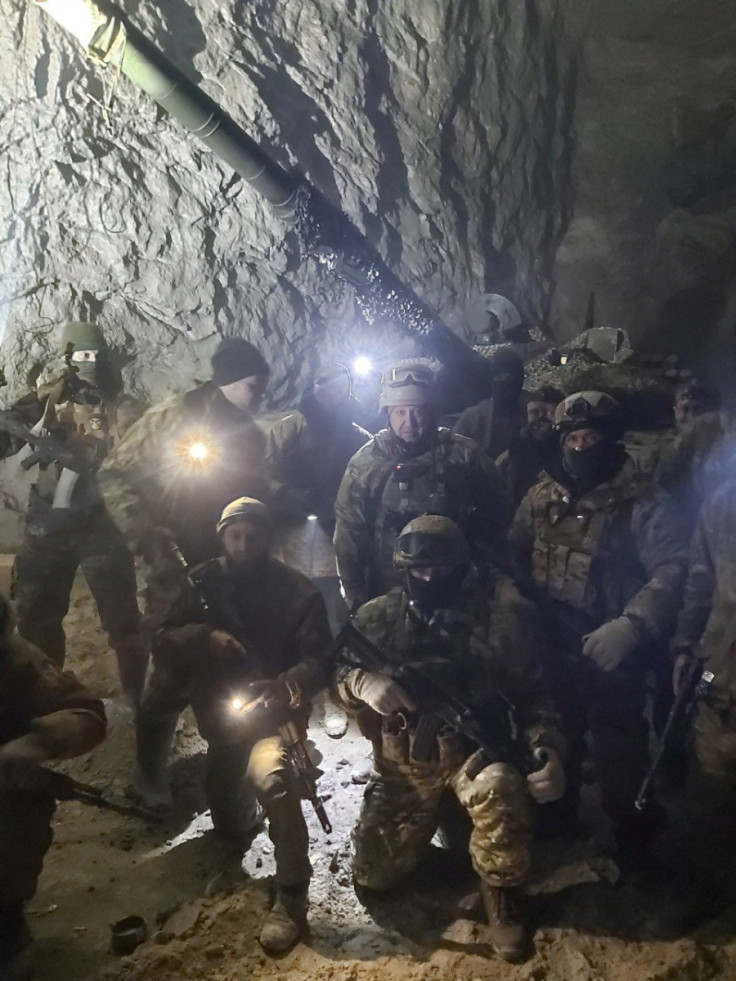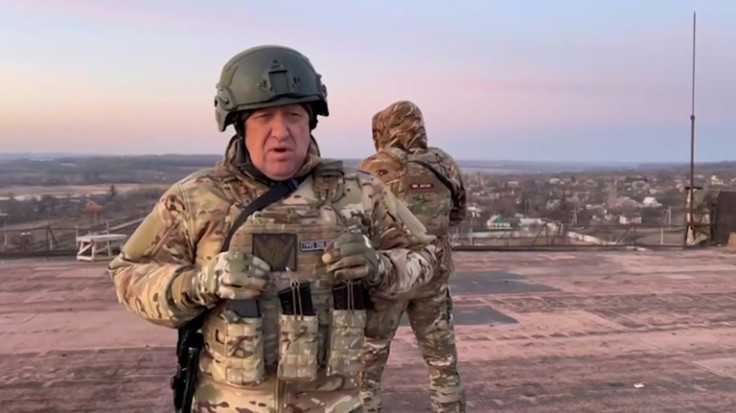Wagner Promised Criminals $1,300 Monthly To Fight In Ukraine; POWs Praised Kyiv For Living Conditions

KEY POINTS
- Prisoners are promised monthly payments of $1,300 for six months of service in Ukraine
- The Wagner group also promised to expunge the prisoners' criminal records
- Wagner fighters praised Kyiv's detention facilities for reasonable and humane living conditions
Russia's infamous Wagner private military company (PMC) promised to pay criminals over 100,000 Russian rubles a month if they agreed to join the group and be deployed to the combat zone in Ukraine, according to a report.
The Wagner group, headed by Russian President Vladimir Putin's ally Yevgeny Prigozhin, began recruiting prisoners from Russian penal colonies in the autumn of last year. Criminals who signed up to fight in the war in Ukraine were promised a return to civilian society with a clean slate and over 100,000 Russian rubles ($1,300) monthly payments for six months of service, The Kyiv Post reported, which conducted interviews with Wagner fighters captured by the Armed Forces of Ukraine (UAF).
The outlet noted that all the fighters had been captured in and around the city of Bakhmut in Donetsk Oblast in January 2023. The city has been the site of brutal fighting between Russian and Ukrainian forces over the past months. It is also believed to be the place where the Wagner group lost up to 30,000 mercenaries.
The ages of the Russian prisoners of war ranged from the early 20s to the late 40s. Many of the fighters said they volunteered to liberate Ukraine from "fascist rule." That being said, all prisoners interviewed by the outlet praised the food and living conditions in Kyiv's detention center, adding that the facilities were reasonable and humane.
In addition, three Wagner soldiers also said they were grateful to the pastors of the Ukrainian military for providing them with Bibles while in captivity.
The remarks of the Russian prisoners of war on Kyiv's detention facilities are in stark contrast to the comments of Ukrainian prisoners captured by Russian forces. A November 2022 report by the Office of the High Commissioner for Human Rights found that Russia committed widespread abuse against Ukrainian POWs, including stripping them of their belongings, transporting them in overcrowded trucks, refusing access to water or toilets for more than a day and tying their wrists using duct tape.
The report also found that Russian detention facilities suffered from a lack of beds, showers and hygiene items for Ukrainian POWs.

© Copyright IBTimes 2024. All rights reserved.






















